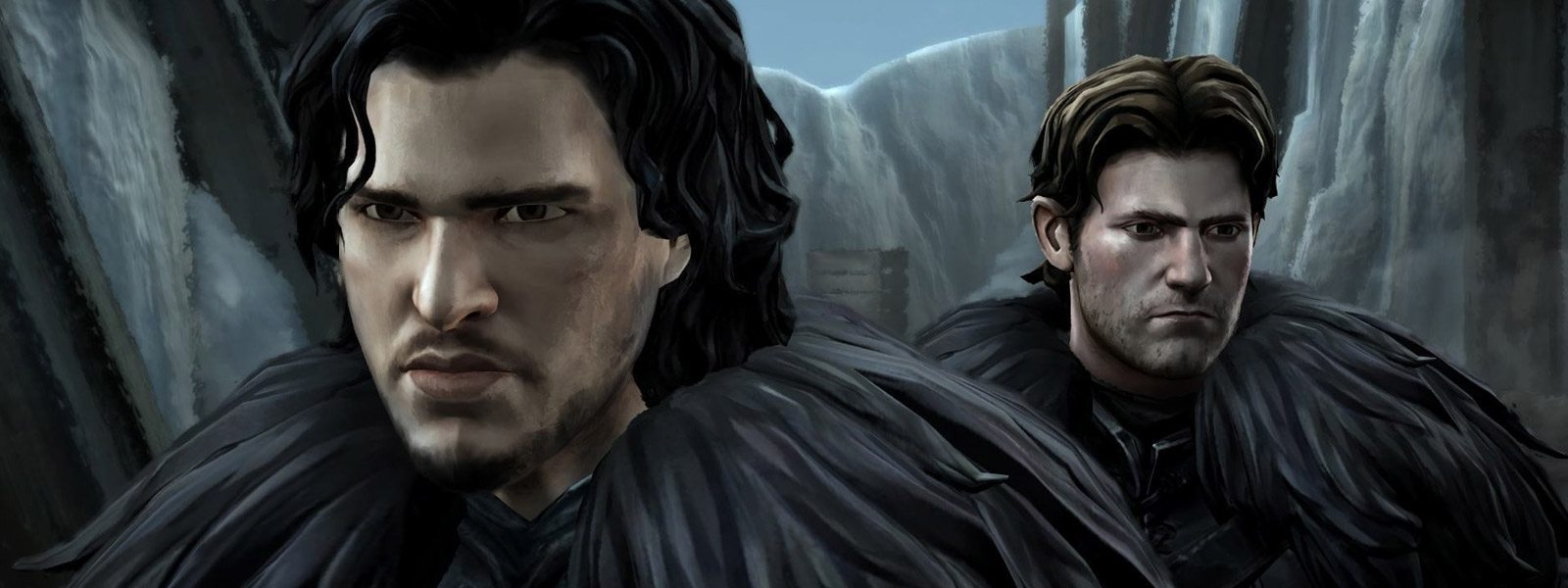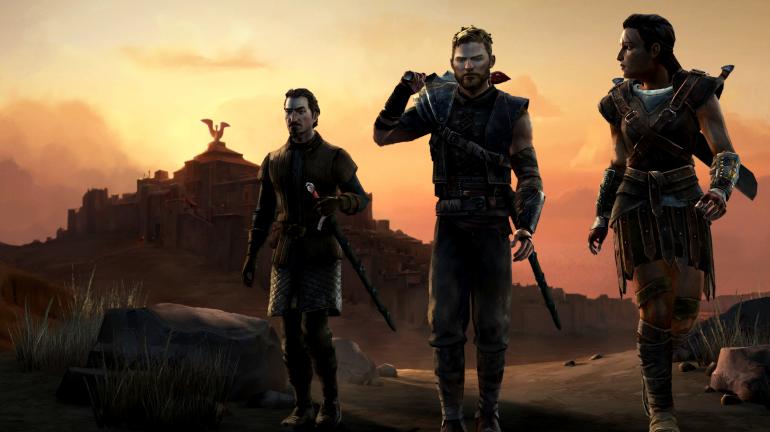Review: Game of Thrones: The Lost Lords
Platforms: PS4, Xbox One, PS3, Xbox 360, PC, iOS
Release Date: Out now
Developer: Telltale Games
Publisher: Telltale Games
Two episodes in and the ill-fated Forresters are already reaching House Stark levels of despair and adversary. With their family members either dead or scattered throughout Westeros, the Forresters’ situation at the end of the first episode was almost unbearably grim – even for Game of Thrones. Despite this, the first episode of Telltales’ choice-based adventure series was an exciting and enthralling two hours, and served as the perfect distraction for those who are waiting impatiently for Game of Thrones’ fifth season to begin. The first episode, then, was an engaging introduction into the tragic story of House Forrester – so how does the second episode – The Lost Lords – hold up in comparison?[divider]
Most notably, the second episode introduces two new playable members of House Forrester. The first one I won’t spoil in this review but it’s a character that hugely changes the dynamic of the politics and plotting that happens at the Forrester seat of Castle Ironrath. The second character is Asher Forrester – the rebellious and wayward son of Gregor Forrester who was exiled across the Narrow Sea. When we first see him, Asher is in the midst of Daenerys Targaryen’s liberation of Slaver’s Bay. Within minutes of his introduction, we are thrown into Asher’s violent life as a sellsword, where kidnapping former slave masters and murdering a group of mercenaries is just part of an ordinary day’s work.
Asher’s violent antics and the exotic backdrop of Slaver’s Bay provides a refreshing change of pace from the political happenings back in Westeros. It’s also exciting to see a playable character who can act as a morally ambiguous anti-hero. Previous Telltale titles often featured such morally grey characters as their main protagonist, such as the convicted murderer Lee Everett in the first season of The Walking Dead and the gruff, ruthless Bigby Wolf in The Wolf Among Us. As in the aforementioned titles, the inclusion of a darker and dishonourable protagonist gives the player opportunities to make more immoral or unethical choices – something that is hard to do with noble characters such as Mira Forrester and Gared Tuttle.
Meanwhile back in Westeros, circumstances are slowly developing for the remaining Forresters throughout the second chapter. In King’s Landing, Mira’s access to powerful figures (such as Margaery Tyrell and Tyrion Lannister) gives her opportunities to help her family hundreds of miles away. Up in the north, squire Gared Tuttle joins the Night’s Watch and meets everybody’s favourite bastard Jon Snow (voiced by Kit Harington). Finally, back in Ironrath, the remaining Forresters discuss their limited options, as House Bolton and Whitehill threaten their existence.
Compared to the eventful and bloody first episode, however, the storylines in the second seem a tad slow and uninteresting in comparison – perhaps because a lot of the episode feels like it’s setting things up for events later in the season. Gared’s isolated story at the Wall is a good example of this. Aside from meeting Jon Snow, hardly anything of real importance happens as Gared begins his training as a member of the Night’s Watch. However, the prospect of fighting in the upcoming Battle of Castle Black and maybe exploring the lands beyond the Wall in search of the North Grove (a mysterious place that could ensure the survival of the Forresters) gives me hope that Gared’s story will soon pick up momentum.
Despite its slow-pace and lack of exciting developments, many of Telltale’s signature strengths are still present in the second episode. In particular, the characters remain well written, engaging and are supported by excellent voice acting. This is no more apparent than with the new characters introduced in The Lost Lords that were created especially for the game. One of these new characters is Frostfinger, a Night’s Watch veteran who trains the new recruits in a harsh and unforgiving manner. Another particularly interesting character is the battle-scarred sellsword Beskha who accompanies Asher in his trip to Mereen. Both characters are instantly captivating and fit in well alongside established favourites, such as Jon Snow.
The concept that your choices impact the story in a meaningful way is also one that is certainly debatable
Some further things that are appreciated in this series are the hidden easter eggs and references for fans of the books and television series. One particularly amusing reference happens during the conversation between Jon Snow and Gared. Choosing a particular choice of dialogue results in a clueless Jon not saying anything and the notification “Jon Snow knows nothing” to appear on screen. Another reference happens when Beskha expresses annoyance about remembering the long and complex names of the people from Slaver’s Bay- a common complaint that is often heard from readers whenever they reach a Daenerys chapter in the books.
However, the few negatives found in the first episode are still apparent in The Lost Lords. For instance, whilst the backdrops of Westeros and the character’s facial expressions are superbly realised, the animation tends to come across as a bit jilted and not quite right, which can occasionally be jarring. The concept that your choices impact the story in a meaningful way is also one that is certainly debatable. However, the second episode in particular includes choices that seemingly promise to pay off in future episodes. So whether the choices you made in The Lost Lords actually matter in terms of influencing the game’s narrative remains to be seen.
Overall, the second chapter of Telltales’ Game of Thrones was a worthy and enjoyable successor to the first, even if it was slower and less eventful in comparison. At times it felt like a filler episode – as if it was a brief interlude before the usual death and destruction starts up again. Thankfully the inclusion of two new game-changing protagonists; the ever-excellent writing and the hidden references weaved into the narrative of the game, mean The Lost Lords remains engaging and fun to play despite its slower pace. [divider_top]
Got any thoughts on Telltale’s latest series? Can you do a good Tywin impression? Let us know on our Twitter, @Boargames.


Comments